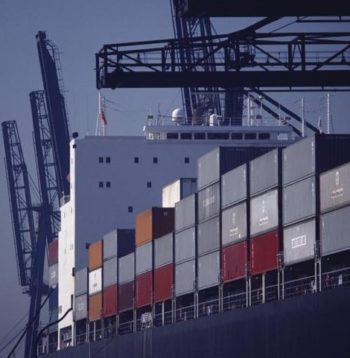Robbie Staniforth, head of innovation and policy at producer compliance scheme Ecosurety, considers how the government’s recent consultation on extended producer responsibility (EPR) will impact reprocessors of packaging in the UK.
OPINION: The recent consultation on EPR has thrown up a plethora of different issues for industry to consider. However, one key area where there appears to be widespread agreement is the overarching principles, outcomes and targets of the new system as over 80% of respondents to the previous EPR consultation in 2019 supported the proposed principles.
With public and industry advocacy, the latest consultation round focuses on how exactly these desired outcomes will be achieved, and by what means.
One outcome that has previously been high profile – the onshoring of reprocessing – has attracted surprisingly few firm proposals. Even though there is a whole chapter dedicated to “reprocessors and exporters”, the issue is only worthy of a subpoint within the consultation’s section on environmental outcomes:
“That there is additional reprocessing capacity available in the UK to handle the increasing quantities of packaging waste that will be available for recycling.”
While the later chapter contains some interesting concepts, the consultation is light on measures that can tip the scales in the favour of domestic reprocessing. For example, there are no suggestions that domestic reprocessing targets will be introduced. Such a target has always attracted criticism for not adhering to free-market, global trade principles. While the optimist sees used packaging material as a “global commodity”, the pessimist sees the offshoring of problematic, low quality waste.
Domestic targets
The closest the proposals come to introducing domestic targets is to invite opinion on whether “closed loop” targets for plastic are required, in addition to HMRC’s plastic packaging tax. Closed loop recycling for all plastic packaging placed onto the market is a way off yet so it is likely that such targets would start relatively low and increase over time. However, there are other domestic markets that could be expanded further to utilise post-consumer plastic packaging that would not benefit from such a target as they are not classified as “closed loop”. A new system should first onshore the problem and then look to close the loop.

The EPR consultation asks whether “closed loop” targets for plastic are required, in addition to HMRC’s plastic packaging tax
It seems the promotion of domestic reprocessing may have been lost. This is largely down to the inordinate complexity of the system required to ensure collectors of post-use packaging are fairly remunerated by producers under a “full net cost” system. Two statutory evidence points are outlined in proposals. It is clear how collectors/consolidators will receive funds from producers, but less clear is how the reprocessors will directly financially benefit from the system once the packaging waste recovery note (PRN) disappears at the end of 2023.
Having spent many years trying to unlock investment potential from the current PRN system, Ecosurety knows all too well its limitations. Of course, the loss of PRN revenue will, at a minimum, have an equal impact on waste exporters. Given the reliance on the PRN value from some exports, it may even have a greater impact on the exporters. However, the waste must be dealt with somewhere, and the scrapping of PRNs alone is unlikely to lead to a building-out of recycling infrastructure.
Over the last decade, the waste and resource sector has come to realise that what matters most is quantities recycled, not simply quantities collected. Citizen trust throughout these transformative times is vital. It only take a few horror stories about material collected for recycling being burned and public engagement in recycling will drop. While there are usually legitimate “quality” reasons for material ending up in smoke, it does not diminish how undesirable this outcome is for the two biggest stakeholders in this equation: people and planet.
Registration
Also present in the EPR consultation is a proposal that reprocessors and exporters will be required to register with a regulator so that waste can be recorded as “proof of recycling”. With the PRN gone, reprocessors may have to simply hope that funding to cover reporting requirements trickles through to them from producers, via collectors. They will also have to keep a keen eye on whether there is a level playing field with exporters when it comes to reporting requirements.

Reprocessors and exporters could be required to register with a regulator so waste can be recorded as “proof of recycling”
The consultation cites visiting foreign reprocessing locations as unviable due to a lack of jurisdiction, safety concerns and cost implications. There is a suggestion that regulators could partner with relevant foreign counterparts for inspection and monitoring, without any specifics on how likely such an outcome will be.
However, there is some hope in proposals for UK reprocessors who look on in frustration at the export market. There are proposals that exporters will have to prove that waste has been received and processed by an overseas reprocessor. Furthermore, there is a proposal for regulators to undertake further inspections at foreign receiving sites, using third parties to perform the checks.
‘A nuclear option’
Finally, there is a nuclear option proposed that could really be a game changer. In order to hit recycling targets, material has to have reached its “end of waste” status before being exported. This would achieve the end-goal of a domestic reprocessing target in one fell swoop by ensuring only genuine commodities are exported, rather than waste. Not only would rebalance the system, it would also protect the reputation of the UK as honest global traders.
Having tried to use the PRN system to expand domestic reprocessing infrastructure, Ecosurety understands how the scales are weighted in favour of existing export routes, rather than supporting UK start-ups or even expanding domestic operations. Overall, there is not enough focus on domestic reprocessing in the Government’s current EPR consultation. As it stands, the “end of waste” option might just be enough to secure the right outcome for people and the planet.
The post ‘Will packaging proposals boost domestic reprocessing?’ appeared first on letsrecycle.com.
Source: letsrecycle.com Packaging



